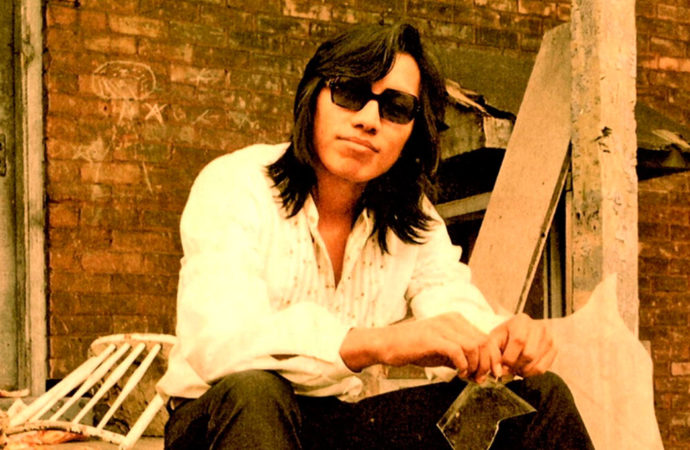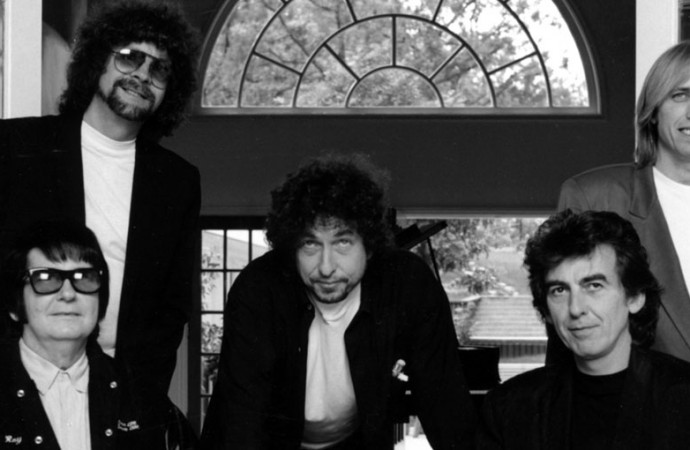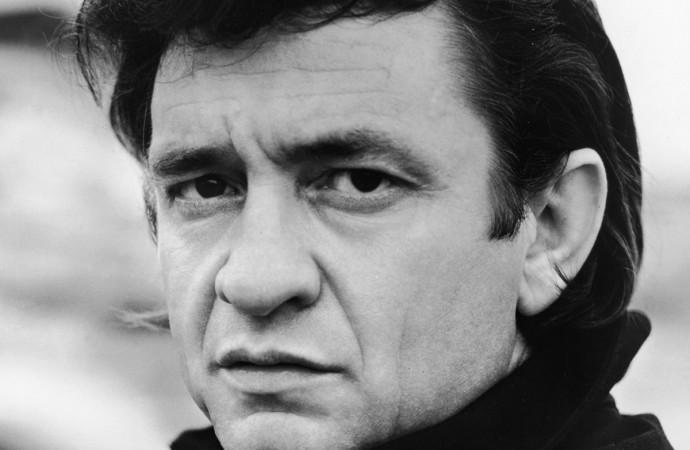It was recently 10 years since the release of Searching For Sugar Man (2002), the remarkable documentary that told the strange story of Sixto Rodríguez, an American singer-songwriter, son of a Mexican immigrant and a Native American woman, who had released a couple of records in the early 1970s that had had no impact whatsoever in his native country, leading him to abandon music and end up in anonymity. While his records became huge hits in South Africa, Australia (where he would tour a couple of times in 1979 and 1981, something the documentary omits) and New Zealand, mainly in the first country, where he is supposed to have sold more copies than the King himself, Elvis Presley.
There, too, a cult was built up around him, with legends about whether he had died on stage, until two South African fans set out to find out about him and see what had really happened until the singer’s daughter discovered the website they had created from Detroit and got in touch with them, which led to the artist discovering his success on the African continent, leading to a successful tour in 1998.
So I’m going to take the opportunity to retrace his musical history through ten of his most significant songs:
“I’ll Sleep Away” (1967)
Rodriguez’s career did not begin with the legendary Cold Fact, but three years earlier with a single with “I’ll Sleep Away” as the A-side and “You’d Like To Admit It” as the B-side. They are two remarkable songs that already show a guy with a lot of talent and potential, especially the first one, a song with jangle guitars and a nice melody that already reveals many of the things that make his music so attractive. It could have been a hit but Impact Records, the label that had recorded him, printed very few copies of it (it’s so hard to get that in the 90s, before the documentary was released, they were already asking about $175 for a copy of the single, so I guess it must be over $1,000 today), plus the company went bankrupt soon after and the main producer, Harry Balk, had lost all interest in promoting him after Rodriguez told him that he was only capable of playing with his back to the audience.
There is hardly any news of its publication, but in one of Cash Box, dated 23 September 1967, is the first of the reviews of this very special artist. It read: Rod Riguez could make a name for himself with this mid-tempo bluesy rock ballad. Keep an eye on him. Of course, everyone lost sight of him and hardly anyone stuck with his name, which is only natural considering that they tried to Americanise him by calling him Rod Riguez…
“Sugar Man” (1970)
Three years later, Rodriguez reappears with a masterful album, Cold Fact, recorded at Tera Shirma Studios in Detroit in the summer of 1969 and released in March 1970, produced by Mike Theodore and Dennis Coffey for Sussex. What makes this album wonderful is the restraint in Theodore and Coffey’s arrangements, the limited use of drums and other instruments, no backing vocals or vocals to support Rodriguez’s, accentuating the importance of his lyrics. Everyone involved in Cold Fact, from the producers to the session musicians to the engineers, was convinced that Rodriguez was going to become a star and the album a hit. But it didn’t, and the record once again went completely unnoticed. The documentary Searching For Sugar Man focuses exclusively on South Africa, but the album climbed to number 23 in the Australian charts in 1978 and stayed there for 55 weeks, leading to two tours of the Antipodes for the artist.
In fact, that album opened with Sugar Man, the best-known song of his career, a marvel about a drug dealer that sounds like an acid trip. The haunting moog synthesizer playing in the background, the simple guitar chords and the dreamy Dylan-esque nasal vocals are some of the hallmarks of a song that sticks in the memory. The only reason it didn’t become a hit was that no one listened to it, because it’s pretty hard to resist its charms.
“I Wonder” (1970)
It may not be Rodriguez’s best lyric but its immortal bass line, played by Coffey, and its sweet melody make it one of the most recognisable songs of his career. Once again, the fact that they let the song breathe without adding the typical string and choral arrangements that used to be added to this type of song stands out, leaving the song with almost its skeleton, acoustic guitar, bass and drums, accompanied by a very Dylan organ and little else. Just hearing the opening bass riff drove the thousands of South Africans who saw it live for the first time in 1998 to madness.
“Crucify Your Mind” (1970)
Given all the time Rodriguez had between his first single and his first album, it is normal that Cold Fact almost sounds like a greatest hits, and the fact is that the artist had dozens of songs to choose from. Another proof is this Crucify Your Mind where he is ironic and sarcastic, like his main reference, the Dylan of the mid-60s, saying things like Was it a hunter or a pimp who made you pay the cost, who now assumes the relaxed position and prostitutes your loss, you were tortured by your own thirst in those pleasures you seek, who makes you curious Tom, who makes you weak James.
“Inner City Blues” (1970)
It is curious that this song shares its title, and veiled social criticism, with the work of another Detroit resident in those years, Marvin Gaye, which he would publish a year later on the essential What’s Going On? This is the song that includes the title phrase and in which Theodore and Coffey find great arrangements that fit it like a glove.
“Jane S. Piddy” (1970)
Some people have wanted to see in this song, and its title, a veiled tribute to Janis Joplin, but what is clear is that this song, in which only the acoustic guitar and Rodriguez’s voice are heard, is the best phrase of his entire career: I saw my reflection in my father’s last tears, the wind slowly melted, San Francisco disappears.
“Rich Folks Hoax” (1970)
Rodriguez’s success in apartheid South Africa is a coincidence, because this man felt totally outside the American dream, because of his social class, his image, his origins and his surname, something that translated well to a totally segregated country like the African one, normal that the legendary anti-apartheid activist Steve Biko figure among those who highly appreciated his music: So don’t tell me about your success, or your recipes for my happiness. Smoke in bed, I could never digest those illusions you claim to have going on.
“Climb Up On My Music” (1971)
Despite Cold Fact‘s lack of commercial success, Rodriguez had the opportunity to record one more album, Coming From Reality, this time made with producer Steve Rowland in London in sessions in late 1970 and released in November 1971. The album is not as brilliant as the previous one, mainly because this time there are not as many good songs, but there are several gems to rescue like this “Climb Up On My Music” which benefited from the excellent electric guitar work of Chris Spedding who was one of the brilliant session musicians who accompanied him.
“Cause” (1971)
Possibly the best remembered song from his second album, a desolate song that opens with the following line: I lost my job two weeks before Christmas… Rowland throws in a fantastic string arrangement that doesn’t interfere with his poetic lyrics: Because they told me that everybody had to pay their dues and I explained that I had overpaid them. So I was overwhelmed and I went to the company shop and the clerk told me that they had just been invaded, so I went on a tear and escaped under the threshold.
“Street Boy” (1973)
Coming From Reality was another commercial failure but Rodriguez kept trying, in 1973 he recorded a couple of great songs, plus a new version of “I’ll Sleep Away”, planned for a third album that never saw the light of day, as Sussex also ended up closing down. It’s a real shame because those two songs, “Street Boy” and “Can’t Get Away”, are among the best of their career. I especially like the first one, with its Latin percussion, its acoustic and spartan sound, Coffey’s return to production, and a caressing melody, one of those that we would never have heard if it weren’t for its fantastic resurrection.









No one has posted any comments yet. Be the first person!